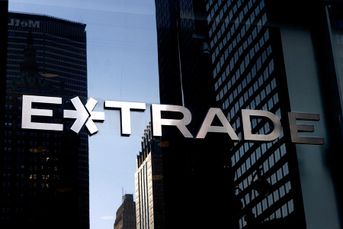Tax reform act still awaiting some important tweaks
IRS has yet to fully parse all parts of the Tax Cuts and Jobs Act, which could affect how much in taxes clients owe for 2018.
As the 2017 tax filing season recedes into history, clients and advisers have to start planning for the 2018 tax year — and thanks to Congress, they’ll need to use an extra pinch of caution.
Tuesday is not only the deadline for filing 2017 income tax returns, it’s the deadline for paying first-quarter estimated taxes. And the IRS has yet to fully parse all the parts of the Tax Cuts and Jobs Act that could affect how much in taxes clients owe for 2018.
“With any major tax reform — or even minor changes in tax laws — there’s often a lag between Congress passing the law and the IRS reviewing all of it,” said Annette Nellen, chair of the American Institute of Certified Public Accountants’ tax executive committee. “A lot of the changes for the TCJA take effect in the 2018 tax year, which will have significant impact for tax planning.”
One of the biggest unsolved questions revolves around the deductibility of client-related business meals. Congress was reasonably clear that it wanted to end deductions for business entertainment — golf outings, sports games and other events. Does that include meals with clients or prospective clients? The tax bill isn’t clear, and the IRS has yet to issue guidance.
Another problem: What about meals at entertainment venues, such as during baseball games or at the skybox at a basketball game? If a meal with clients is not considered entertainment, would one at an entertainment venue taint the deductibility of the meal? The IRS has yet to issue guidance on the subject. The AICPA would like it clarified that if the meal is billed separately, it could be deductible.
Another area that’s still murky involves meals provided for the convenience of an employer. Under the TCJA, those expenses would be 50% nondeductible in 2018 and entirely nondeductible after 2025. The AICPA wants to make it easier for restaurant owners to calculate the nondeductible cost of the food provided — possibly by using a flat dollar allowance per employee.
The Internal Revenue Service frequently gets stuck with the thankless task of interpreting what Congress meant in legislation. The agency is currently slogging its way through the TCJA, but it has been hampered by budget cuts in recent years. The IRS keeps a website listing new rulings on the TCJA.
Congress has also left a list of tax cuts that are set to expire in 2017, but are commonly renewed annually, called extenders.
For example, taxpayers can get a credit of 10% of their purchases of energy-efficient improvements to their homes, such as windows, doors and roofs. It also allows credit for energy-efficient appliance, such as furnaces and heat pumps, to a lifetime maximum of $500. The provision, which was extended seven times, has yet to be extended for 2018, according to the Joint Committee on Taxation.
Other provisions that may — or may not — be extended include incentives for biodiesel fuel, credits for renewable energy and deductions for energy-efficient commercial property.
Learn more about reprints and licensing for this article.








